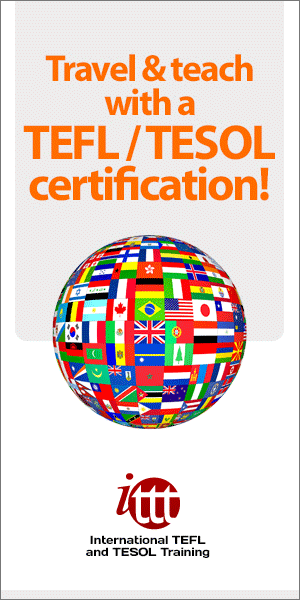WHAT IS GEPIK?
GEPIK stands for Gyeonggi English Program in Korea. It was established in 2003 in order to provide English education to the region. There are currently over 1,000 foreign ESL teachers working for GEPIK.
WHO IS ELIGIBLE?
Candidates must meet the following criteria:
- Citizen of an English speaking country (Canada, USA, Australia, New Zealand, South Africa, United Kingdom)
- Native English Speaker
- Have a completed Bachelor’s Degree from a University or College in an English speaking country
WHY WORK FOR GEPIK?
GEPIK offers many benefits that are unavailable in other areas of Korea. In addition to the standard benefits of free flight, accommodation and one month severance pay, GEPIK teachers also receive the following benefits:
- Salary is 10%-20% higher than in other public schools
- Vacation time is 20 days instead of the common 14 days offered in other public schools, or 10 days offered in private schools
- Settlement allowance of 300,000 KRW for all teachers
- Proximity to Seoul and access to Seoul Subway System
- City and rural placements available (bonus for teaching in a rural area)
GEPIK BENEFITS AND SALARY
English teachers in Gyeonggi Province are entitled to many benefits including the following:
- Free single housing (utilities not included)
- Free flight (reimbursed upon arrival in Korea)
- Orientation and training
- Airport pickup
- Settlement allowance
- One month salary at the completion of the contract
- Paid vacation of 20 working days + 13-15 national holidays
- 50% medical insurance and pension contribution
GEPIK SALARY SCALE
Salary for English teaching jobs in Gyeonggi Province public schools depends on a combination of qualifications and experience. The guidelines are outlined below:
|
Category |
GEPIK Regular Stream Requirements |
Monthly Salary |
|
1-A |
|
2.3 million KRW |
|
1-B |
|
|
|
1-C |
|
|
|
1-D |
|
|
|
2-A |
Elementary, Middle, or Secondary School Teacher’s Certificate |
2.1 million KRW |
|
2-B |
TESOL, TEFL or CELTA certificate comprised of a min. of 100 course hours |
|
|
2-C |
Minimum one year of full time English teaching experience at accredited institution(s) |
|
|
2-D |
Bachelor’s degree with a major in Education |
|
|
2-E |
Bachelor’s degree with a major in Education |
|
|
3 |
*This is the minimum entry requirement into GEPIK |
2.0 million KRW |
RESPONSIBILITIES OF GEPIK ENGLISH TEACHERS
Primarily, GEPIK teachers are required to conduct beginner to intermediate English classes at an assigned Gyeonggi Province school alongside a Korean “co-teacher”. GEPIK English teachers are required to teach 22 classes (each lasting 40 – 50 minutes) per week. There are other various extracurricular programs that teachers will run such as English Day Camp, English Speech contest, and English classes for fellow Korean teachers.
GEPIK WORKING HOURS
The period of employment for English teaching jobs is 1 year, starting from the first day of employment in Korea. Teachers will generally work 8 hours per day including lunch, for 5 days a week from Monday to Friday and shall not work on Saturdays, Sundays or National Holidays. Teachers will have 22 teaching hours per week.
GEPIK PLACEMENT LOCATIONS
Location preference for English teaching jobs are granted whenever possible but placements are limited to availability. The more flexibility an applicant has with regards to application, the better chance they have of securing a job.
Placements are located in cities and rural areas across Gyeonggi.








Leave A Comment